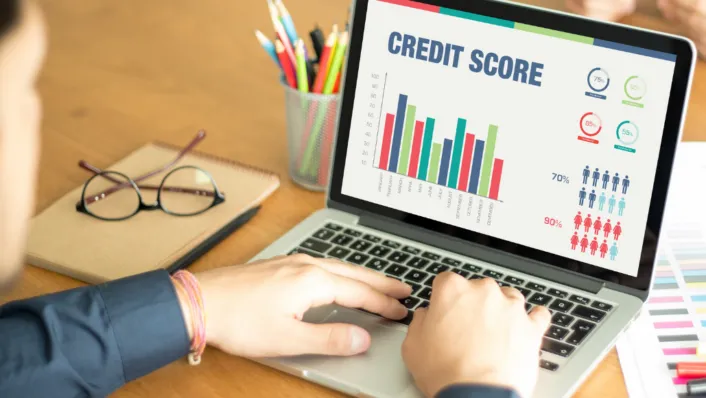When The Budgetnista presented a virtual conversation earlier this year, one of her topics was about credit scores.
As The Budgetnista notes in the video highlight below, your credit score is a number based on a formula using the information in your credit report. The result is an accurate forecast of how likely you are to pay your bills.
As a straight-shooting financial educator, it makes sense that The Budgetnista took a deep dive into what makes up your credit score and why it is vital to your overall financial health and wellness.
As she explains, your credit score is calculated using five major components, with varying levels of importance. These credit score factors include payment history, amount owed, length of credit history, credit mix and inquiries.
All of these categories are taken into account in your overall score. No one factor or incident determines it completely
Credit Scores and Financial Health
Credit scores are important if you are considering applying for any type of loan. If you’ve gotten a loan, a credit card, or even auto insurance, the rate you paid was directly related to your credit score.
The higher the score, the better you look to lenders.
People with the highest scores get the lowest interest rates.
The Budgetnista also shares what makes up a good “FICO Score” which is a proprietary tool created by the data analytics company FICO.
FICO’s is not the only type of credit score available, but it is one of the most common measurements most used by lenders to determine the risk involved in doing business with a borrower.
GreenPath Financial Service
Managing Your Credit Score
Staying on top of your credit report is an important financial wellness checkup. Take a look at these free resources to keep you stay informed about your credit score.
How Do Lenders Use Credit Scores?
Your credit score communicates the idea of “risk.” That’s because credit scores are used by lenders to determine the risk involved in doing business with a borrower.
If you’ve been paying your bills on time for the past 25 years, you’re likely a low-risk person to lend to. In contrast, imagine you got your first credit card two years ago and have had four late payments during that time. Your balance on the card is at the credit limit. You have applied for new credit four times in the last six months. Based on these facts, you will have a lower score, and are considered a higher risk.
Credit scores can and do change. Improving a credit score usually takes time and patience. There is no “quick fix” for damaged credit.
About the Budgetnista
Aliche is the author of the new, New York Times Best Seller Get Good with Money. Through her “Live Richer Movement”, Aliche has helped over one million women (Dream Catchers) collectively save more than $250 million dollars and pay off over $200 million dollars in debt. A New Jersey native, Aliche was instrumental in getting The Budgetnista Law (A1414) passed in January 2019, making financial education mandatory for all middle school students in the state. She has been featured on Good Morning America, TODAY show, PBS, TIME, The Wall Street Journal, Reuters, ESSENCE, FORBES, Fox Business, MSNBC, CNN/HLN, Black Enterprise and other major outlets.
Credit Score Next Steps
GreenPath was excited to team up with Tiffany Aliche who shares similar approaches as we do in helping people save money, improve their credit and pay off debt.
GreenPath’s NFCC-certified credit counselors can walk you through a free review of your credit report. We’ll explain how to read the report and how credit scoring works, and answer your questions.
The full archive recording shares The Budgetnista’s powerful story – and her support of GreenPath, a trusted nonprofit resource for 60 years.










